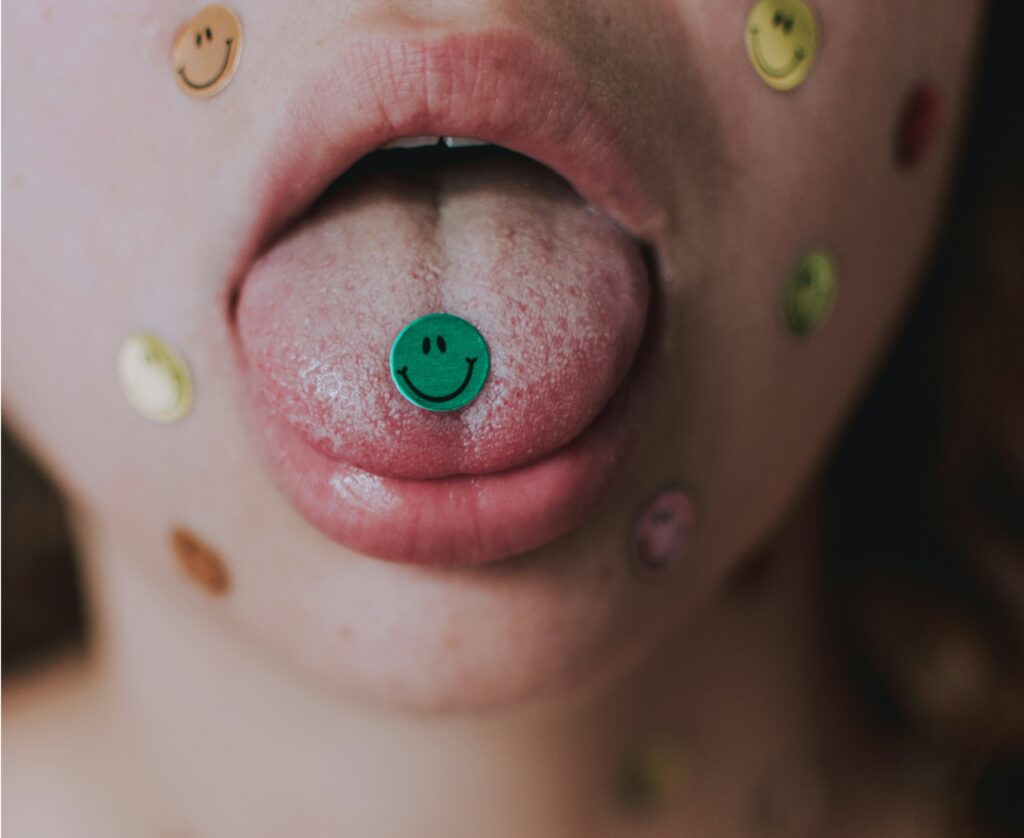
⚠️ Affiliate Disclaimer: This post may contain affiliate links, which means I may earn a small commission at no extra cost to you, if you make a purchase through one of these links. I only recommend products or services I genuinely trust and believe can provide value. Thank you for supporting My Medical Muse!
6 Tongue Signs of Vitamin Deficiency That Reveal Hidden Health Issues
What Your Tongue Is Telling You About Vitamin Deficiencies
Have You Looked at Your Tongue Lately? Have you ever noticed your tongue looking unusually pale, swollen, smooth, or even cracked and wondered if it meant something?
Most people don’t pay attention to their tongue unless it hurts or gets accidentally bitten. I used to be like that too until I began researching the many signs and symptoms the tongue can reveal.This humble muscle is more than just a tool for speaking and tasting. It’s actually a window into your body’s nutritional health.
Your tongue can show early signs of vitamin deficiencies, sometimes long before they appear in your blood work or manifest as fatigue, brain fog, or illness. In fact, it’s been a known practice in traditional Chinese and Ayurvedic medicine for centuries where tongue changes in color, coating, and texture are key diagnostic tools.Even in Africa, patients with malaria often report a bitter taste in their mouths despite eating sweet foods or complain of loss of taste entirely. These aren’t just strange symptoms, they’re meaningful clues from the body.
In this post, you’ll learn what your tongue might be trying to tell you and when it’s time to take action.
Also Read: 15 Fun Facts About Your Tongue.
Why the Tongue Is a Clue to Your Nutrient Levels
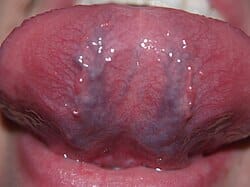
The tongue has a rich blood supply and rapidly regenerating tissue, which makes it especially sensitive to internal imbalances particularly nutritional ones. Many deficiencies, especially in iron, vitamin B12, folate, and zinc, can affect the structure and function of the tongue and surrounding oral tissues. You may notice burning, color changes, loss of taste, or an unusual texture.
In medicine, the tongue is routinely examined during physical checkups and for good reason. Doctors look at the tongue’s color to assess blood flow and oxygenation, for instance, a pale tongue may suggest anemia, while a bluish tinge could signal low oxygen levels.
What Different Tongue Changes Might Mean
Here’s a breakdown of common tongue symptoms and the vitamin or mineral deficiencies they may be pointing to:
1. Pale or Smooth Tongue:
Possible deficiencies:
Iron, Vitamin B12, Folate
A pale or smooth tongue may indicate anemia, often caused by low iron or B-vitamin levels, the tongue may appear slick or shiny due to the loss of tiny taste buds (papillae). You might also experience fatigue, dizziness, and shortness of breath.
2. Glossy, Beefy-Red Tongue (Atrophic Glossitis):
Possible deficiencies:
Vitamin B12, Folate, Riboflavin (B2)
The tongue looks bright red, smooth, and shiny and sometimes painful, often described as a burning tongue, especially after spicy or hot food. It is common in megaloblastic anemia caused by folate or B12 deficiency.
3. Cracked or Fissured Tongue:
 Possible deficiencies:
Possible deficiencies:
Vitamin B2, B3 (Niacin), Biotin
Deep grooves or cracks run across the tongue’s surface, may feel sore, dry, or irritated. It can occur with angular cheilitis which means cracks in the corners of the mouth.
4. Swollen Tongue With Teeth Marks on the Sides:
Possible deficiencies:
Magnesium and Vitamin B complex
Tongue looks enlarged and may press against the teeth, leaving scalloped edges often seen in hypothyroidism, but also linked to magnesium deficiency or water retention.
5. White Coating or Patches:
 Possible deficiencies:
Possible deficiencies:
Zinc, Vitamin A
A thick white coating could signal oral thrush (fungal overgrowth) which is often due to immune suppression, zinc plays a critical role in immune defense and healing while vitamin A supports mucosal barrier integrity.
6. Burning or Tingling Tongue (Burning Mouth Syndrome)
Possible deficiencies:
B12, B6, Iron
Burning, tingling, or numbness of the tongue sometimes without visible changes,it is common in older adults, postmenopausal women, and vegetarians. It may also reflect nerve damage from long-term vitamin B deficiency.
Other Oral Signs of Vitamin Deficiencies
The tongue isn’t the only part of your mouth that gives away nutrient deficiencies. Here are other clues to watch for:
Symptom and Possible Deficiency
- Cracks at the corners of the mouth (angular cheilitis) are commonly associated with deficiencies in vitamins B2, B3, B6, and iron.
- Bleeding gums are often linked to vitamin C deficiency, while mouth ulcers or canker sores may indicate a lack of vitamin B12, folate (B9), or iron.
- Dry mouth is frequently related to vitamin A and zinc deficiencies, and bad breath (halitosis) is often a sign of low zinc levels.
Top Nutrients That Keep Your Tongue Healthy
Here’s a list of essential nutrients for maintaining healthy oral tissues and natural sources to get them from:
1. Vitamin B12:
Found in meat, fish, eggs, dairy, fortified cereals
Deficiency risk: Vegetarians, vegans, older adults, people with gut issues.
2. Iron:
Found in red meat, lentils, spinach, fortified grains.
Supports: Oxygen delivery and red blood cell health.
3. Folate (Vitamin B9):
Found in leafy greens, beans, citrus fruits.
Role: DNA repair and mucosal tissue health
4. Zinc:
Found in shellfish, pumpkin seeds, legumes.
Role: Immune function, wound healing, taste preservation
5. Vitamin B2, B3, B6:
Found in eggs, whole grains, meats.
Role: Prevents inflammation, soreness, and glossitis.
6. Vitamin C:
Found in: Citrus fruits, strawberries, bell peppers.
Role: Prevents gum bleeding and supports collagen formation
Who’s Most at Risk? You might be more prone to tongue and mouth changes if you:
- Eat a vegan or restrictive diet.
- Have digestive issues like IBS, celiac, or low stomach acid.
- Are over age 50.
- Take certain medications (like metformin or PPIs).
- Are under chronic stress or live with inflammation.
- Smoke or drink alcohol.
- Recently recovered from infection or surgery.
What To Do If You Notice These tongue signs of vitamin deficiency
Not every tongue change means a deficiency but recurring or persistent symptoms shouldn’t be ignored, here’s what to do:
- Inspect Your Tongue Weekly: Use a mirror and natural lighting to check for changes in color, texture, and coating.
- Review Your Diet Honestly: Are you getting a balanced mix of whole foods, lean proteins, fruits, and vegetables?
- See a Doctor or Nutritionist: Ask for blood tests for vitamin B12, folate, iron, and zinc levels.
- Take a High-Quality Multivitamin: Especially helpful if you’re not eating a diverse diet or have poor absorption.
- Avoid Self-Diagnosing: Remember tongue changes can also come from infections, dry mouth, allergies, or even autoimmune conditions.
Recommended: multivitamin for Men and multivitamin for Women
Final Thoughts: Listen to What Your Tongue Is Telling You
Your tongue isn’t just there to help you taste food it’s an early warning system for nutritional, metabolic, and immune health, by paying attention to subtle changes in color, texture, and sensitivity, you can spot potential deficiencies before they spiral into chronic fatigue, poor immunity, or mood issues.
So next time you brush your teeth, take a moment to inspect your tongue, your body might be trying to tell you something important.
👩⚕️ Need Personalized Health Advice?
Get expert guidance tailored to your unique health concerns through MuseCare Consult. Our licensed doctors are here to help you understand your symptoms, medications, and lab results—confidentially and affordably.
👉 Book a MuseCare Consult NowRelated Post:
- White Coating on Tongue and Gut Health: 12 Hidden Gut Issues You Shouldn’t Ignore
- 7 Critical Facts You Must Know: How to Choose the Right Multivitamin
- Diabetic Neuropathy That Actually Work
- Correct Iron Deficiency with Food Fast: Expert Timeline + 7-Day Meal Plan
- 13 Sneaky Signs of Magnesium Deficiency in Women (And How to Fix It Naturally)
- 15 Natural Remedies for Sore Throat That Work Fast and Effectively
Dr. Ijasusi Bamidele, MBBS (Binzhou Medical University, China), is a medical doctor with 5 years of clinical experience and founder of MyMedicalMuse.com, a subsidiary of Delimann Limited. As a health content writer for audiences in the USA, Canada, and Europe, Dr. Ijasusi helps readers understand complex health conditions, recognize why they have certain symptoms, and apply practical lifestyle modifications to improve well-being

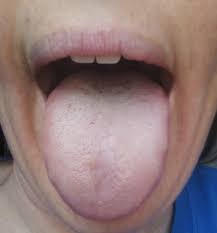
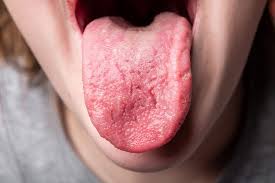 Possible deficiencies:
Possible deficiencies: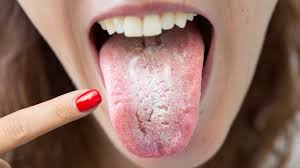 Possible deficiencies:
Possible deficiencies: